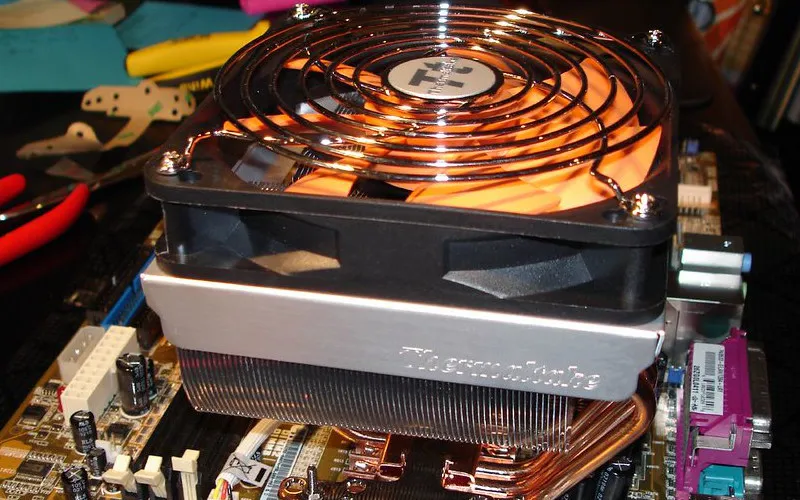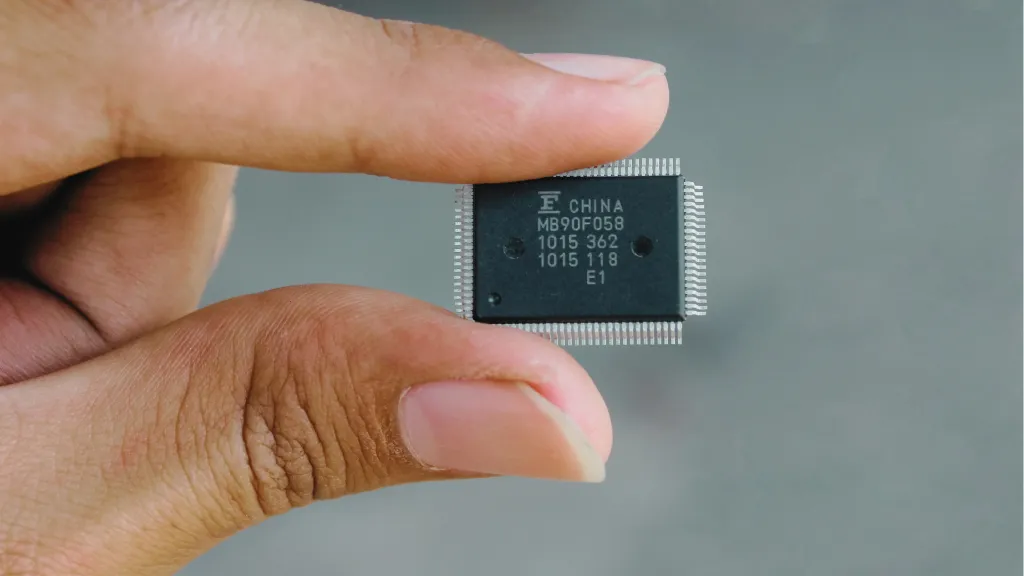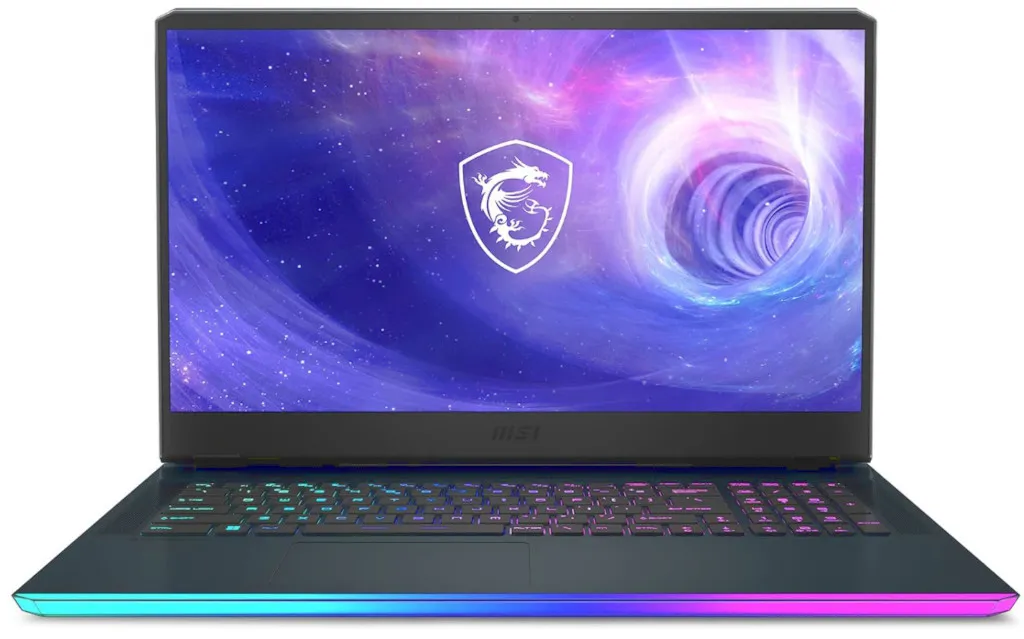As a gamer, I always seek ways to optimize my gaming experience. One factor that can impact gaming performance is CPU temperature, and one component that helps regulate that temperature is the CPU cooler.
Many CPUs come with a stock CPU cooler, but the question is, is it enough for gaming?
What Is A Stock CPU Cooler?
A stock CPU cooler is a cooling system bundled with a CPU. It’s designed to be an affordable, basic solution for CPU cooling. Stock CPU coolers are often made from aluminum and use a single fan to dissipate heat. They’re not intended for overclocking or heavy use but for standard use cases.
Stock CPU coolers are included with CPUs to offer an affordable solution for users who don’t require high-performance cooling. They’re also convenient since they’re pre-installed and ready to go out of the box.
However, they may not be the best solution for gamers who need optimal performance.
Stock CPU coolers are generally less effective in cooling a CPU than aftermarket CPU coolers. Aftermarket coolers often use better materials and have multiple fans to improve heat dissipation.
How Do CPU Coolers Affect Gaming Performance?
CPU temperature is a crucial factor in gaming performance. When a CPU gets too hot, it can throttle its performance, leading to decreased framerates and even crashes. Therefore, it’s essential to keep CPU temperature under control, especially when gaming.
The CPU cooler plays a crucial role in regulating CPU temperature. If the CPU cooler isn’t effective enough, the CPU may get too hot, leading to poor gaming performance. Therefore, the effectiveness of the CPU cooler can impact gaming performance significantly.
Compared to stock CPU coolers, aftermarket CPU coolers are often more effective in regulating CPU temperature. They can keep the CPU cooler under load, which can help maintain optimal gaming performance.
Pros And Cons Of Using A Stock Cpu Cooler For Gaming
Using a stock CPU cooler for gaming has its advantages and disadvantages.
Here are some of the pros and cons to consider:
Pros
- Stock CPU coolers are affordable and convenient since they come bundled with the CPU.
- They’re sufficient for standard use cases like web browsing and office work.
- They’re easy to install since they’re pre-installed on the CPU.
Cons
- They’re often less effective in regulating CPU temperature, which can impact gaming performance.
- They’re not suitable for overclocking or heavy use cases.
- They can be noisy under load, which can be distracting when gaming.
How To Choose The Right CPU Cooler For Gaming?
If you’re looking for a CPU cooler that’s suitable for gaming, here are some factors to consider:
- Budget: Aftermarket CPU coolers come in a wide range of prices, so it’s important to consider how much you’re willing to spend.
- CPU compatibility: Make sure your CPU cooler is compatible with your CPU.
- Cooling performance: Look for a CPU cooler with good cooling performance to ensure optimal gaming performance.
- Noise level: Consider the noise level of the CPU cooler since it can impact your gaming experience.
- Aesthetics: If the appearance of your setup is essential to you, consider the design of the CPU cooler.
There are different aftermarket CPU coolers to choose from, including air and liquid coolers.
Air coolers are generally more affordable and easier to install, while liquid coolers offer better cooling performance but are more expensive and require more maintenance.
Do You Need An Expensive CPU Cooler?
If you’re a casual user who only does light browsing, some basic office work, or occasional gaming, a stock CPU cooler is likely sufficient for your needs.
However, if you’re a hardcore gamer, content creator, or overclocker, you may want to consider investing in an aftermarket CPU cooler.
An expensive CPU cooler can help you achieve better performance and stability, especially if you plan to overclock your CPU.
It can also keep your CPU temperature under control, which is crucial for maintaining optimal performance during intense gaming sessions or CPU-intensive tasks like video editing.
That said, you don’t necessarily need the most expensive CPU cooler on the market. Many high-quality aftermarket coolers offer great performance at a reasonable price. It all comes down to finding the right balance between cost and performance.
When deciding whether to invest in an expensive CPU cooler, consider what you plan to do with your computer and what kind of performance you want.
A stock CPU cooler or a mid-range aftermarket cooler may be sufficient if you’re a casual user. But investing in a high-end CPU cooler may be worth it if you’re a power user who demands the best performance.
How Long Do Stock CPU Coolers Last?
The answer isn’t straightforward if you’re using a stock CPU cooler and wondering how long it will last. It all depends on various factors, like the quality of the cooler, the workload on your CPU, and the environment in which your computer operates.
Generally speaking, stock CPU coolers are designed to last 6-10 years with proper usage and maintenance. However, if you’re running your CPU at high loads for extended periods or your computer is located in a hot and dusty environment, the lifespan of your stock cooler may be shorter.
To ensure the longevity of your stock CPU cooler, keep your computer clean and dust-free, avoid running your CPU at excessively high loads for prolonged periods, and monitor your CPU temperature regularly.
Overheating can cause damage to your CPU and potentially shorten the lifespan of your cooler.
If you’re concerned about the lifespan of your stock CPU cooler or want better cooling performance, you may want to consider upgrading to an aftermarket cooler.
Aftermarket coolers are generally designed to last longer and offer better cooling performance than stock coolers. They may be a worthwhile investment if you’re a heavy user or want to maximize your CPU’s potential.
Conclusion
Whether a stock CPU cooler is enough for gaming depends on the user’s needs. A stock CPU cooler may be sufficient if you’re a casual gamer who doesn’t require high-performance cooling.
However, an aftermarket CPU cooler may be necessary for serious gamers who want to ensure optimal gaming performance.
Aftermarket CPU coolers offer better cooling performance and help maintain optimal gaming performance.
They come in a wide range of prices and designs, so it’s essential to consider your budget, CPU compatibility, cooling performance, noise level, and aesthetics when choosing the right CPU cooler for gaming.
If you’re a gamer looking to optimize your gaming experience, an aftermarket CPU cooler is worth considering. While a stock CPU cooler may be sufficient for some users, an aftermarket CPU cooler can provide better cooling performance and ensure optimal gaming performance.
It’s all about finding the right balance between cost, performance, and personal preference.







